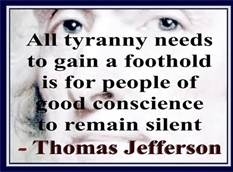The
Golden Rule is called the golden rule because it has its origin in many
different cultures and is the basis of one of the oldest and most powerful
formulations of moral duty. This moral
maxim which is also called the ‘Law of Reciprocity” is based on the idea of
mutual interest and has its roots and builds a common thread through all of the
major religions, and especially the Abrahamic teachings of Judaism, Islam and
Christianity. Now, I am asking myself, can’t we just put away all of politics
and bring together the children of God under their one True Parents?
I
watched a short video on TED by Karen Armstrong who defends the
Golden Rule for various reasons. She
asks some very simple questions: will dogmas divide us? Or will it unite us for
the common good? She reviews the
catalysts that can drive the world's faiths to rediscover the Golden Rule. She is a religious historian and has done
extensive research in all religions.
Here is her video:
“People want to be
right instead compassioned.”
~
Karen Armstrong
I
believe that the Golden Rule is a deep source of morality. It takes us beyond our own self-centeredness
and challenges us to be compassioned, be aware of other’s needs and by applying
it, helps us to integrate with people who are different from us. It is the foundation of all existence: Give
and Take (Receive). Nothing can occur
without that exchange, in fact, all of creation happens on that circular
swap. From the very give-and-take within
the atom to the very complex orbits of the planets, the whole universe
maintains its balance of energy that way.
It is one of those natural laws we could not live without. Therefore, even if we don’t belief in it or
try to deny the principle, it is challenging us to our very core.
In
the Western World we refer to it because of the words of Jesus in his Sermon on
the Mount.
“Do unto others as
you would have them do unto you.” ~Matthew 7:12
But
the golden rule has been mentioned long before Jesus in other cultures, here
are some quotes from other religions and cultures in alphabetical order:
“Even
looking at contemporary morals and social ethics, a certain principle applies.
It is the standard that we live for the sake of others and not insist that
others live for us."
~ Sun Myung Moon (71:125, April 29, 1974)
According
to the universal law, a subject partner should care for its object partner as
parents care for their children or teachers for their students. However, people
in the fallen world instead try to use others in self-centered ways. That is
why they perish. Through their good example, religious people should educate
others in Heaven’s principle that we should place the happiness of others
before our own happiness.
~
Sun Myung Moon (271:72, August 21, 1995)
The
Golden Rule imposes on each of us an independent, enduring moral obligation to
help and be kind to others even if they ignore their similar obligations to us.
I
believe that even some businesses are applying the
golden rule. It is certainly good
customer service. I listened to Chade-MengTan,
a Google engineer, as he testified to the everyday compassion practices of
Google.
The
Ontario Consultants for Religious Tolerance have identified 18 religions, which
all share a version of what Americans commonly refer to as "The Golden
Rule." The consultants define it as "The Ethic of Reciprocity --
often called the Golden Rule in Christianity -- simply states that you are to
treat other people as you would wish to be treated yourself." This concept
exists throughout hundreds of cultures and therefore intersects with business
and workplace behavior.
An
extreme example of lack of integrity and accountability can be seen in today's
political landscape. No matter where they land on the spectrum, politicians are
consistently promising to do the right things if elected. Lower taxes, save the
environment, stimulate the economy - every election season the American public
is inundated with promises.
To
be fair, these politicians might actually think they can follow through on
their vows, but the lack of results from any single one of them or any party as
a whole has become an epidemic in and of itself. It also proves that politics without being
based spiritual values cannot survive. That's where accountability comes in -
you must do what you say.
Here
is a beautiful video, showing us the applications of the Golden Rule:
If
you have never heard of the Golden Rule or the Law of Reciprocity I hope you
can do your own research.
-"It's
impossible," said pride. "It's risky," said experience.
"It's pointless," said reason. "Give it a try," whispered
the heart.
–
Unknown








